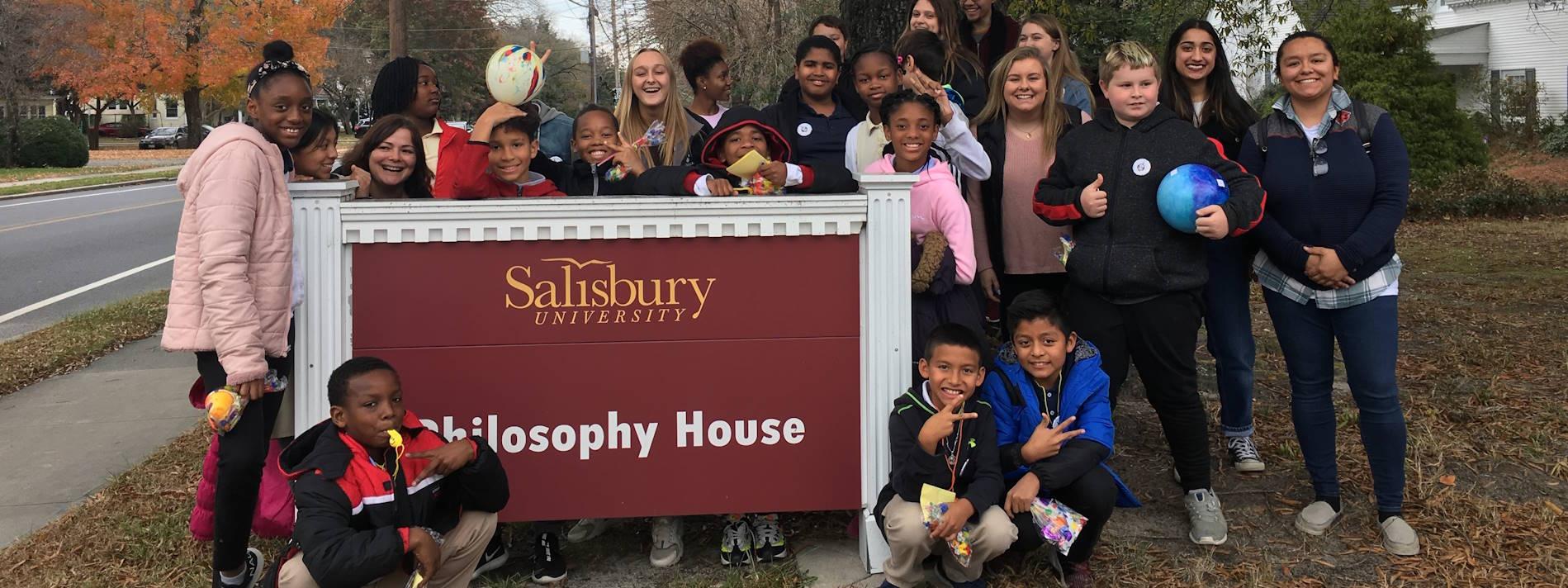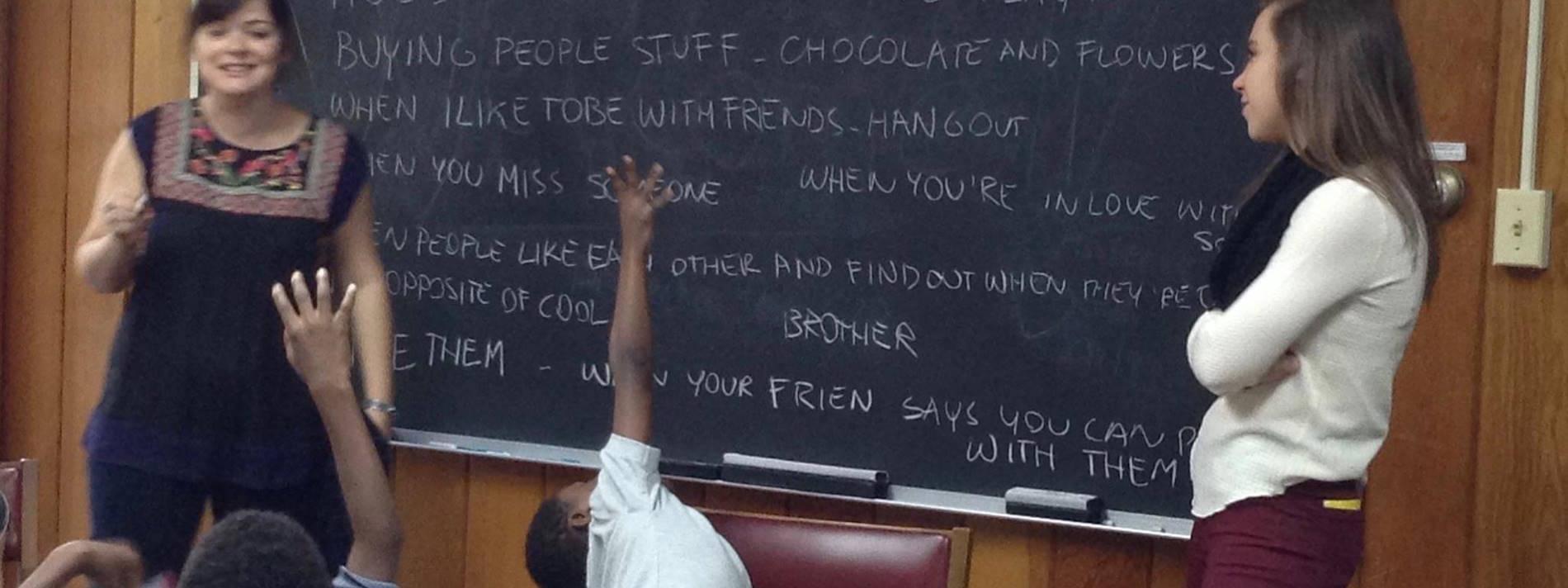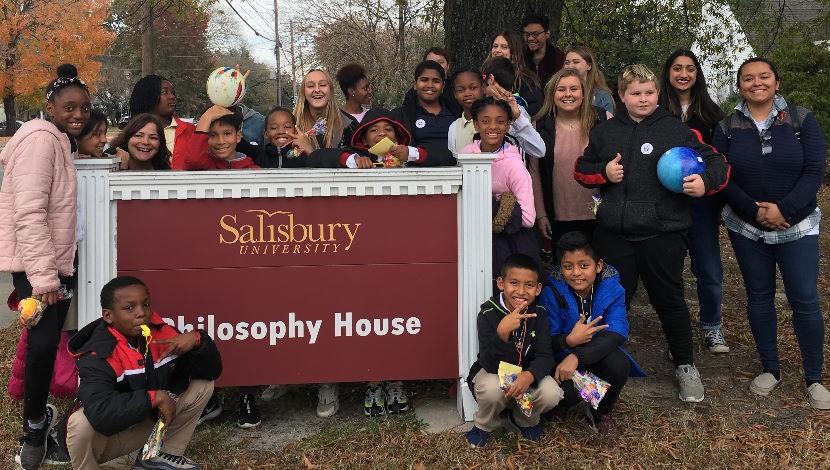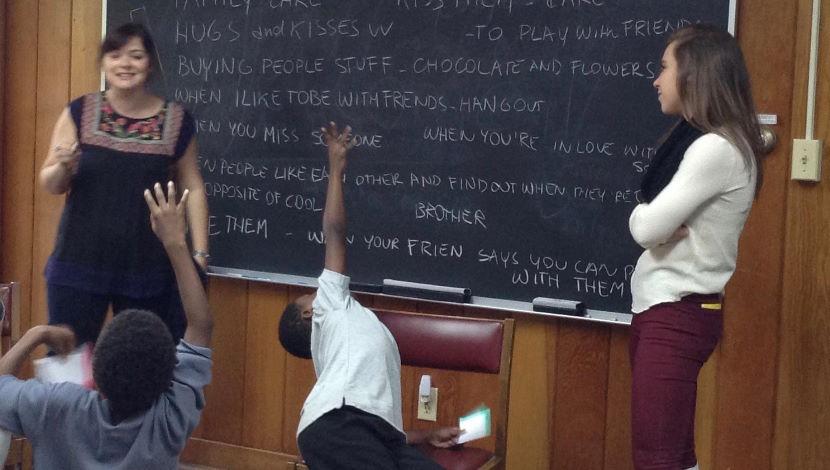Philosophy in Schools and Communities
Since 2014, Dr. Cammarano has been visiting local schools, libraries and community centers with her undergraduate students to facilitate philosophy-based activities with children. These activities are fun, open ended discussions and games to practice critical thinking and philosophical inquiry. Recently, we have been running a “Young Thinkers Club” at the Sarbanes Branch for the Wicomico Public Library on Thursday afternoons.
Philosophy is the cultivation of excellent thinking. Children are natural philosophers because they wonder about things constantly and they reflect on their thinking.
Here are some examples of philosophical questions asked by children:
Are ghosts real? What does it mean to be good? Can one be friends with their smart phone? Why do people hurt other people? What makes something beautiful?
These questions are central, common and contestable. By practicing philosophical discussions, children become better thinkers. Philosophy does not tell kids what to think, but how to think.
In the elementary schools, philosophy is part of a skills-based curriculum. It can help students and teachers meet MD College and Career- Ready Standards, with focus on skills such as: Problem solving, Critical Thinking, Creativity, and Collaboration. More specifically, philosophy can help develop a broad range of thinking and communication capacities, like asking pertinent questions, identifying key points in presentations, communicating ideas clearly, exploring issues from multiple perspectives and synthetizing complex information. Immediate benefits from philosophy apply to literacy, scientific inquiry and mathematical reasoning. There are many programs in schools that also connect philosophical discussion with multicultural education and citizenship education.
Would you like to invite us to your school or community center to start a philosophy program?
Please contact us at cxcammarano@salisbury.edu.
We look forward to hearing from you!



